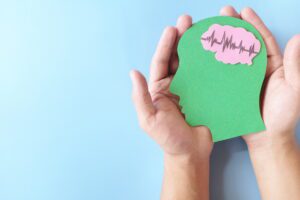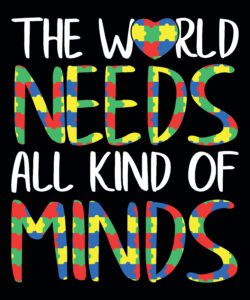15 Oct ADHD Awareness Part 2
This is Part 2, the final part of our ADHD Awareness blog series. This is a young girl’s testimony of navigating life with ADHD and her experience with medication. If you have not read part 1, go check it out here before reading this one!

Q: What was finding the right medication like?
A: A lot of trial and error. Certain ones made me react with strong emotions and amplified my anxiety. It wasn’t just about the right medication, but the right dosage, too. If it was too high, I would have panic attacks, but if it was too low, it didn’t help at all. When I finally found the right medication, my brain had more clarity, which helped with getting things done. It’s not a cure or fix, but more like a helping hand. It’s hard to describe what finding the right medication is like…you just know when you know. My body builds resistance to medication a lot, so over time, I feel like I’ve slowly had to build up on dosage. But luckily, I’ve been consistent with the dose I’m on for a while now.
Q: What is it like when you are on your medication versus when you don’t take it?
A: If I don’t take it one day, then my mind is more “chaotic” and I have trouble focusing. My mind races, I have trouble getting things done, and I’m more impulsive. When I do take my medication, I have more self control, discipline, and my mind is a little more at ease.
Q: What are your thoughts on taking medication? Do you think everyone who has ADHD should be on medication, or do you think it varies from person to person depending on their condition?
A: I think it varies. Some people function better without it, where others don’t. I’ve heard some people say it makes them feel numb or emotionless. Sometimes it takes finding the right medication. There are stimulants and non stimulant medications, and different formulations, short acting and long acting. The medications are on a spectrum. I started with Ritalin and it made me very hyper and emotional. I had a short fuse and less control over my emotions. I’m now on Vyvanse and it does very well for me. It doesn’t change my personality or make me feel like I’m not myself.
Q: How do you know the medication is right for you?
A: For me, I knew when I didn’t have any negative reactions or side effects. I still felt like myself which is a big thing when taking ADHD medication.

Q: What are some ways you manage your ADHD outside of medication? Is it difficult? Helpful?
A: I make lists, set alarms and reminders, reach out to people that I interact with on a daily basis and ask for help to stay on task. It is still hard to keep myself on task and have the self-discipline that I need. When my thoughts are all over the place and I notice I am having trouble, it is hard to talk myself through it to get myself on track or motivated. Instead, I play some music to drown out my thoughts. It’s like there are a hundred conversations or voices in my head and I have to silence them to focus on what’s in front of me.
Q: What are your thoughts/feelings on having to live with ADHD? Do you have a positive or negative outlook?
A: Both. Sometimes it can make life interesting and you have those moments where your creativity can shine without limits. Other times, it is hard to live with and when other people don’t understand it, that makes it even harder. I spend a lot of time explaining myself. Sometimes I take a lot more time than others to get things done, and it can discourage me to feel like I am not normal, while other people can do things easier and more naturally. But having ADHD is normal and I have to remind myself of that a lot. It can feel like I am dragging behind while other people are moving forward. I sometimes feel like I am not as smart as others, even though I know that is not true. It makes me try harder for the future and work harder, which makes me stronger and smarter.

Q: Before you went to online schooling, what resources did your previous school have available for those with ADHD?
A: My school had what is called the 504 plan. The 504 plan allows you to have accommodations that your teachers are aware of, like having extra time to turn in assignments and tests. If I needed to work somewhere else, like the hallway or library, because I was having trouble focusing in the classroom environment, I could ask the teacher to do so.
Q: What is something you would like to be available or would be helpful in life to help those like you with ADHD?
A: I want there to be more awareness of ADHD and education on what it is like to live with it. I wish more people understood it and didn’t think we use it as an excuse to be lazy, get benefits, or for attention.
Q: What are some words of wisdom or encouragement for those considering medication for ADHD?
A: It is not a cure-all and don’t expect it to fix the things you struggle with. It is a helping hand, but it’s still up to you to learn ways that work for you to deal with it. It is worth it in the end. As soon as you see side effects, stop taking the medication and talk to your doctor to find a different kind. Taking medication will look different for everybody. It is perfectly normal to have fears and worries about side effects and trying medication in general. It is a trial and error type of journey, but once you find the right one, you’ll know you made the right decision.

If you have ADHD, it is very beneficial to learn about it so you can better understand yourself. If you don’t have ADHD, it can help you understand people you know or those around you who have it. Be kind and patient to those with ADHD. Be patient with yourself.
If you are in need of resources for ADHD diagnosis, medication, or therapy, check out the resource page on our website for some available options!

Sorry, the comment form is closed at this time.